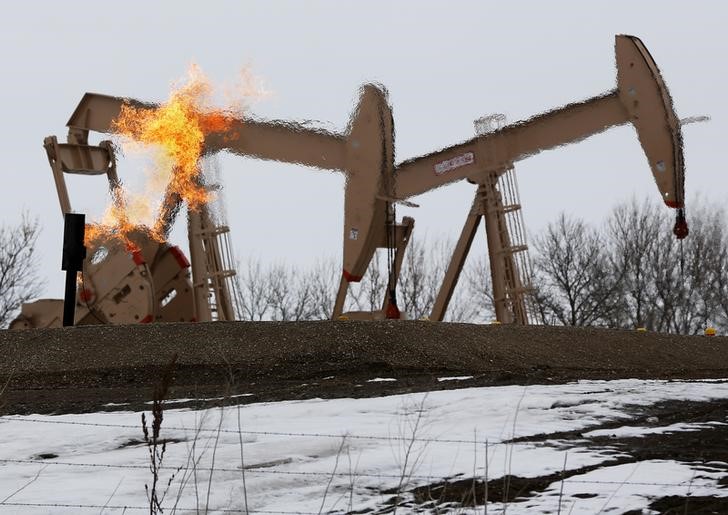By Barani Krishnan
Investing.com – Fear that oil will lose more demand than it can manage in the near term sent global crude prices to 2017 lows on Thursday as the leadership of OPEC sought to calm the market.
Russia also announced that it was committed to supporting production cuts suggested by its allies in OPEC, a cartel Moscow isn’t a member of but cooperates with to keep oil prices up.
The Russians have been part of the wider OPEC+ alliance since 2016. But they’ve also played a cat-and-mouse game in recent weeks with the cartel’s kingpin Saudi Arabia on whether they would support new cuts of 600,000 barrels per day. Those cuts were suggested by the kingdom and most of the alliance’s 23 members to overcome demand lost to the coronavirus crisis.
Brent, the London-traded global benchmark for crude, was down $1.40, or 2.6%, at $51.41 per barrel by 1:20 PM ET (18:20 GMT). Brent earlier hit an August 2017 low of $50.39, setting itself on course to a test of the $50 support held since January 2019.
West Texas Intermediate, the U.S. crude benchmark, tumbled $1.86, or 3.8%, at $46.88 per barrel.
Oil tumbled as U.S. stocks fell for a sixth-straight day after the United States reported its first possible “community infection” from the coronavirus involving an individual who had developed symptoms despite not traveling out of the country or being in contact with another infected person.
“The spread of the virus is spreading not only fear but oil demand destruction and horror thinking about potential demand destruction to come,” said Phil Flynn, energy analyst at the Price Futures Group brokerage in Chicago.
Flynn cited data from the U.S. Energy Information Administration showing demand for jet fuel down 8% year on year as flights were being canceled across the world.
“OPEC plus Russia (are) still thinking debating how to respond with production cuts,” he said. “It is hard to make a strong case for a bottom, even though technically we should be near one.”
The EIA has also said that it expects worldwide demand growth for oil to fall by 310,000 barrels per day for all of 2020. The Paris-based International Energy Agency, meanwhile, forecasts that first-quarter global demand for crude will drop by 435,000 bpd, versus the opening quarter of 2019.
Crude prices, however, recovered from Thursday’s lows after OPEC Secretary General Mohammad Barkindo sought to put a floor under the market.
“There is a renewed commitment” in the alliance “to build the consensus for a joint action in mitigating the current hyper volatility in the market,” Barkindo told Bloomberg in an interview from Saudi Arabia.
Russian Energy Minister Alexander Novak was quoted saying by state media that Moscow wants to continue its bilateral and multilateral cooperation with Saudi Arabia.
“We have never had these differences," Novak added, implying that some sort of production cut deal was likely when OPEC’s 13 original members and 10 Russia-led allies meet on March 5-6 in Vienna.
